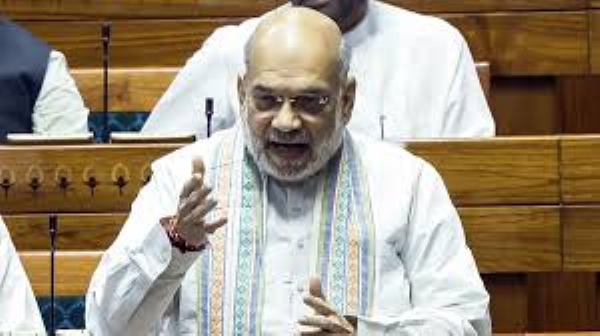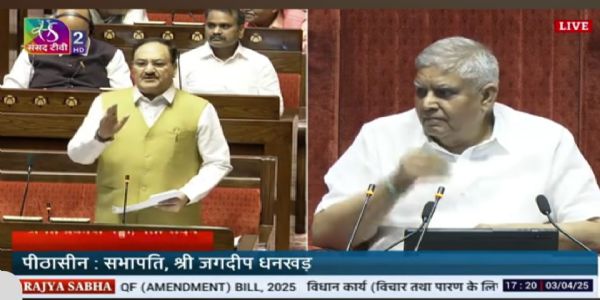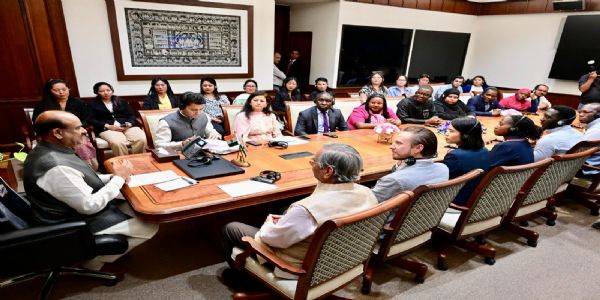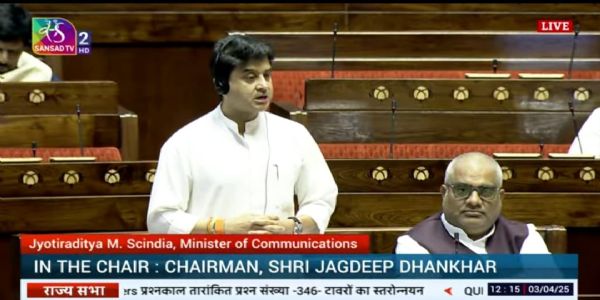
New Delhi, April 2 (H.S.): Union Home Minister Amit Shah stated in the Lok Sabha on Wednesday that the Congress party committed the mistake of amending the Waqf Bill in 2013, granting the Waqf unlimited power even above the Constitution. As a result, there has been a significant increase in Waqf properties from 2013 to 2025. Additionally, at that time, the right of the affected individuals to approach the court against the seized land was also taken away
Home Minister Amit Shah, while citing statistics, mentioned that between the amendment of the Waqf Act in 2013 and 2025, Waqf properties increased by 2.1 million acres, compared to only 1.8 million acres until 2013.
He said, “How can any decision of the government or organization be beyond the jurisdiction of the court? Where will a person whose land has been taken go? The Congress did this for vote-bank politics, and we reject it. Any individual with grievances can approach the court.”
Shah mentioned that the bill was introduced after extensive consultations. Its aim is to improve the management of Waqf properties so that the income generated can be increased. This income will be allocated for the development of Muslims, but currently, the funds are being embezzled. After the amendment, the Waqf Board and the Waqf Council will put an end to this embezzlement.
Citing examples regarding this, he stated that between 2001 and 2012, Waqf properties worth two lakh crores were transferred to private institutions on a hundred-year lease. The High Court in Bengaluru had to intervene to prevent the seizure of 602 acres of land. This money belongs to the poor Muslims of the country; it is not meant for the rich to embezzle.
The Home Minister referenced a statement by former Bihar Chief Minister Lalu Prasad Yadav, saying that he had then expressed a desire for strict legislation on Waqf and for the imprisonment of those who were embezzling. Narendra Modi has fulfilled Lalu Prasad Yadav's wishes.
Amit Shah, while accusing the opposition of spreading confusion and engaging in vote bank politics, stated that the Congress and its allies are not concerned about backward classes or Muslims. For years, they have operated based on casteism and appeasement. Instead of focusing on the welfare of these communities, they have promoted family-centric politics through a well-thought-out strategy. Since 2014, Prime Minister Narendra Modi's government has eradicated casteism, appeasement, and nepotism, and instead established the politics of development.
During this time, Shah clarified that Parliament is supreme and that the laws passed within it must be accepted by all. One member had stated that the minority community would not accept this law. He said, “How can anyone say, 'We will not accept this law'? This is a law of the Government of India, and it applies to everyone. It is binding on all and should be accepted.”
The Home Minister stated that the concept of Wakf should be based on its use, and the land being used should have been registered by now. However, a property cannot be declared as Wakf property today based on practices from the Mughal era.
Regarding the inclusion of non-Muslims, Shah highlighted the roles of the Wakf Board and Wakf Council. He said that both will oversee the administration of properties donated to Wakf by anyone under the law and ensure that they are used for the right purposes. Additionally, there is no intention for the government to intervene in trusts formed through donations for Muslims' religious activities. The Mutawalli and Waqif will be from the Muslim community.
Amit Shah mentioned that the bill has been introduced after extensive discussion. In the amendments made in 2013, there were 5.4 to 5.5 hours of discussion in both houses. In contrast, we will have a total of 16 hours of discussion on the bill combined in the Lok Sabha and Rajya Sabha.
Hindusthan Samachar / Jun Sarkar








